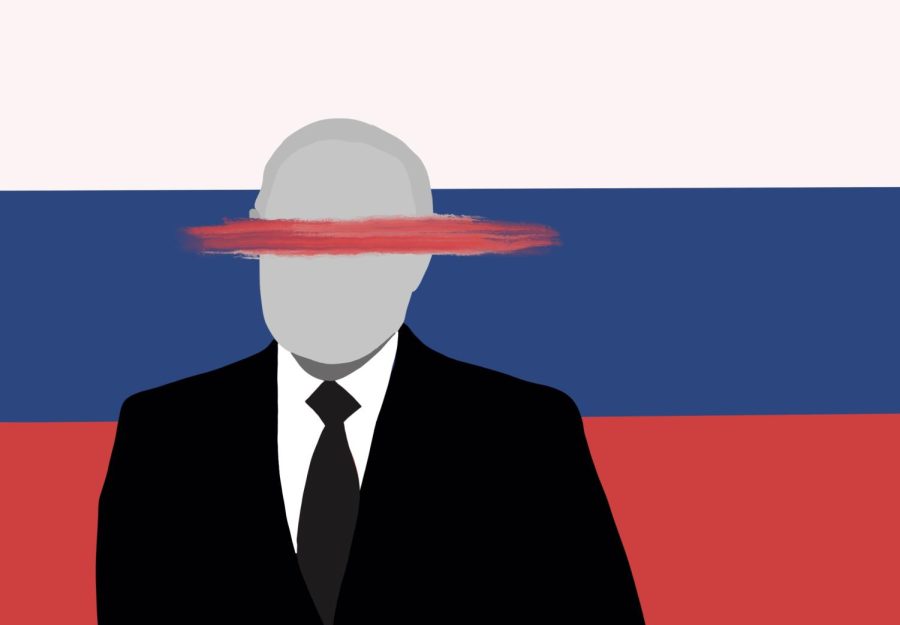Curb Russian colonialism
April 25, 2023
The Russian Federation’s February 2022 invasion of Ukraine spotlighted much attention from individuals all over the world and brought to light Ukraine’s past as a victim of Russian colonialism. However, what was not revealed was Russia’s extended past of colonialism in other countries, particularly in those that were formerly a part of the Soviet Union and in the Russian Far East. Russia’s colonialism, Russification and war crimes are not merely something of the past, as its effects are still experienced today by many countries besides Ukraine.
The illegal annexation of Donbas, Ukraine’s easternmost region, is not the first time in the recent past that Russia has illegally occupied a part of Ukraine. In 2014, the Russian Federation illegally annexed the Crimean Peninsula. This piece of land, situated in the Black Sea, was once home to the ethnically indigenous population of Crimean Tatars, who were deported by the Soviet Union in 1944. The annexation of Crimea did not gain nearly as much attention as the 2022 invasion, and those in international affairs believe that the invasion may have been avoided if Crimea’s annexation had been taken more seriously. Ukrainian culture is constantly seen as a subset of Russian culture; however, many figures in the heart of Russian history, such as Prince of Kyiv Volodymyr the Great, Anne of Kyiv and author Mykola Gogol, are all Ukrainian, but Ukraine’s history has been rewritten and altered and skillfully and fraudulently presented as Russian.
In 2008, Russia invaded the country of Georgia, a country situated in the Caucasus region. The regions of Abkhazia and South Ossetia, part of Georgian territory, were occupied by Russia, as the Russian military had vested interests in the region and saw the geographic position of the regions to be vital to Russian influence in the Black Sea. This is what started the Russo-Georgian War.
To this day, Russia occupies a strip of land in the Eastern European country of Moldova called Transnistria. The Russian military controls this region, and the military is stationed there without the consent of Moldova. The Parliamentary Assembly of the Council of Europe recognizes Transnistria as a Moldovan territory occupied by Russia.
The country of Belarus is the best example of a place most affected by Russian colonialism. The president of Belarus, Alexander Lukashenka, is a Russian puppet president who is the longest-reigning European leader. Belarus is also known as Europe’s last dictatorship. In Belarus, the Belarusian language is suppressed and according to The United Nations Educational, Scientific and Cultural Organization, the language is on the verge of becoming extinct. The language promoted in the country is Russian, as speaking Belarusian, using Belarusian slogans such as, “Long Live Belarus,” and using or wearing the traditional Belarusian colors are seen as extremist and can lead to arrest. Only Russian culture and the Russian language are allowed to be practiced in Belarus due to Russification and the president being controlled by Russian President Vladimir Putin, who has close ties with President Lukashenko. In the year 2020, there were mass protests in the country due to Lukashenko pronouncing himself as president. These protests resulted in the kidnapping, disappearance, rape and trial of hundreds of protesters, but the world paid no attention to Belarus’ cries.
There were many telltale signs that Russia was going to do something as drastic as invade and bomb another country, as can be displayed by the Crimean annexation, Georgian invasion, Transnistrian occupation and Belarusian dictatorship. However, people have a habit of jumping on board when it is too little, too late, as demonstrated in February 2022 when Russia illegally invaded Ukraine. Russia’s imperialism has been ignored and swept under the rug for far too long, as has the brutality of its leaders and military. Whether it is disguised as an empire, a communist regime, a federation, as assisting Russian-backed separatist movements or “de-Nazification,” colonialism is colonialism.








